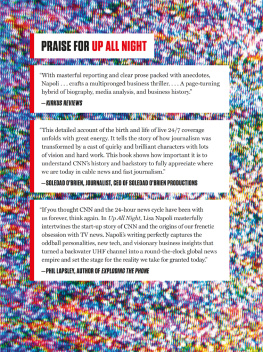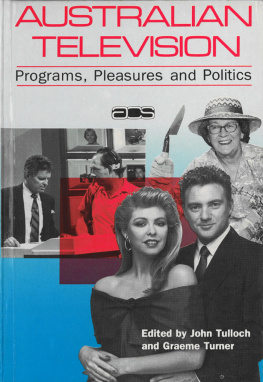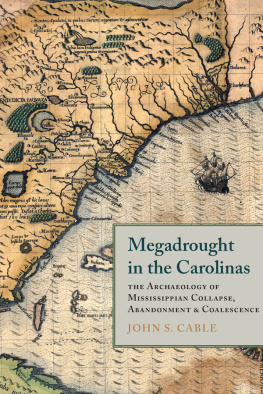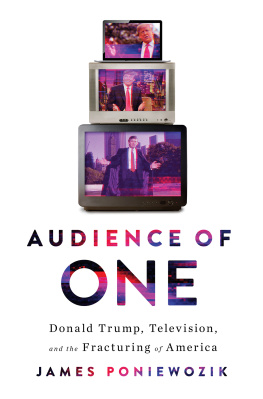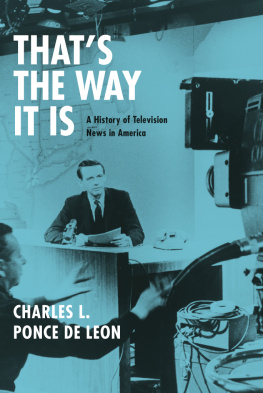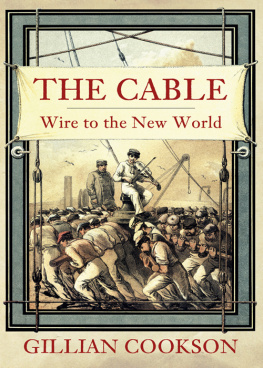Library of Congress Cataloging-in-Publication Data
Names: McMurria, John, 1963author.
Title: Republic on the wire : cable television, pluralism, and the politics of new technologies, 19481984 / John McMurria.
Description: New Brunswick, New Jersey : Rutgers University Press, 2017. | Includes bibliographical references and index.
Identifiers: LCCN 2016015543| ISBN 9780813585307 (hardback) | ISBN 9780813585291 (pbk.) | ISBN 9780813585314 (e-book (epub)) | ISBN 9780813585321 (e-book (Web PDF))
Subjects: LCSH: Cable televisionUnited StatesHistory. | BroadcastingUnited StatesHistory. | Television broadcastingUnited StatesHistory. | BISAC: SOCIAL SCIENCE / Media Studies. | TECHNOLOGY & ENGINEERING / Telecommunications. | HISTORY / United States / 20th Century.
Classification: LCC HE8700.72.U6 M46 2017 | DDC 384.55/50973dc23
LC record available at https://lccn.loc.gov/2016015543
A British Cataloging-in-Publication record for this book is available from the British Library.
Copyright 2017 by John McMurria
All rights reserved
No part of this book may be reproduced or utilized in any form or by any means, electronic or mechanical, or by any information storage and retrieval system, without written permission from the publisher. Please contact Rutgers University Press, 106 Somerset Street, New Brunswick, NJ 08901. The only exception to this prohibition is fair use as defined by U.S. copyright law.
www.rutgersuniversitypress.org
For my mother, Marion, Lytle, Miller, Lori, Fergus, and Doug
and
In loving memory of my father, my sister Ann, and my brother David
I wrote this book within supportive communities of mentors, colleagues, co-workers, archivists, friends, and family. I am especially indebted to Toby Miller. Since taking his graduate course on cultural studies many years ago, he has inspired and supported me in my academic and life pursuits. His unwavering political commitments to thinking about the complexities of power and subjectivity continually remind me of the value of academic labor. While I was a graduate student, his invitation to join him and others on a collaborative writing project taught me how to write for publication and opened up academic opportunities. Since then he has continued to offer sage advice and warm friendship. In addition, I thank David Nasaw for teaching me the political significance of cultural history. Anna McCarthy taught me the value of conceptual clarity in rendering cultural history politically relevant for understanding the past and intervening in the present. Tom Streeter inspired me to think about how ideas mattered in understanding the history of media policy. And Rick Maxwells political economy perspective reminded me to never lose sight of the forest through the trees.
I have benefited from supportive communities at three universities. As I first began to develop this project as a graduate student at New York University, the faculty in the Department of Cinema Studies guided my academic pursuits. A core group of fellow graduate students sustained me through the challenges and continued to encourage me as scholars and friends ever since: Ryan DeRosa, Nitin Govil, Shawn Shimpach, Gretchen Skogerson, and Michael Spear. While a faculty member at DePaul University I received support for my research from two Research Council Paid Leave Fellowships, a Competitive Faculty Research Grant, and a Faculty Research and Development Summer Research Grant. The camaraderie among Department of Communications faculty made my four years there a joy and the interdisciplinary engagements academically stimulating. I would like to thank Department Chair Barbara Speicher and Dean Jackie Taylor for mentoring my professional development.
The University of California San Diego has supported my research through two Hellman Fellowships, an Academic Career Development Grant, and research and travel grants from the Academic Senate Committee on Research. The shared commitment to interdisciplinary critical approaches to communication among the Department of Communications faculty and graduate students has stretched and enriched my thinking about questions of culture, politics, and history. I thank Department Chairs Dan Hallin, David Serlin, and Val Hartouni for providing course releases and moderate committee work to give me time to complete the manuscript. I also thank Fernando Dominguez Rubio, Lilly Irani, and Christo Sims for hosting an informal discussion of my manuscript and for the faculty and graduate students in attendance who provided insightful feedback. The department graduate students, many of whom are now colleagues in the field, have helped me work through ideas central to this project, including Matt Dewey, Hannah Dick, Alex Dubee, Jahmese Fort, Reece Peck, and Pawan Singh. Working with the departments professional and friendly staff has been a pleasure. In supporting my research pursuits I would like to thank Judy Wertin, Liz Floyd, Cindy Syacina, Gayle Aruta, and Renee Thomas in the Department of Communications, and Michelle Null in the Office of the Academic Senate. I am particularly grateful for the frequent early morning conversations with Angela Velazquez, who not only enlivened my days, but reminded me that the ivory tower is continuously a site of labor dispute.
I am indebted to those who have generously given verbal and written feedback at various stages of my project. I thank Michael Curtin, Michele Hilmes, Mary Beltrn, and the attending graduate students for their valuable feedback during a talk in the Department of Communication Arts at University of Wisconsin, Madison. I thank Sarah Banet-Weiser, Cynthia Chris, and Anthony Freitas for their sharp editorial guidance of my work on pay-TV. I thank Nitin Govil for his sharp feedback on an early chapter and for his unconditional moral support since we were graduate students. I am grateful to Robert Horwitz for spending his Sundays reading several chapter drafts and offering his valuable comments regarding clarity of writing and argument. Henry Jenkins and Karen Tongson offered insightful comments and encouragement at an important stage in the publishing process. I also thank the anonymous reviewers at Rutgers University Press for their helpful suggestions about organization and flow of argument. A special thank you goes to Jennifer Holt for her sharp advice about broadening the books scope and intervention as I readied it for publication.
The staff and archivists at a number of institutions have offered research guidance, expertise, and an enthusiasm for searching the past. Thank you to all those who helped me locate documents at the Dayton Public Library; the Chicago Municipal Reference Library; the Chicago History Museum; the City Archives Historical Records Program at the Los Angeles City Clerks Office; the National Archives in College Park, Maryland; the New York Public Librarys Performing Arts collection and Schomburg Center for Research in Black Culture; the Rand Corporation; the Wisconsin Historical Society; and the UCLA Arts Library. A special thanks to Lisa Wood at the Ohio Historical Society; to Norwood Kerr for his research assistance at the State of Alabama Department of Archives and History; to Tara Craig at the Columbia University Rare Book and Manuscript Library; to Christine Bruzzese at the New York City Department of Records and Information Services; to my researcher, Doris Kinney, who sifted through documents at the Franklin D. Roosevelt Library with guidance from Kirsten Carter; to Shehla Khawaja, Lisa Backman, and Brian Kenny at The Cable Center; and Steve McShane at the Calumet Regional Archives, Anderson Library, Indiana University Northwest. Additional thanks goes to Brian Kenny and Steve McShane for locating and clearing photographs for publication.



